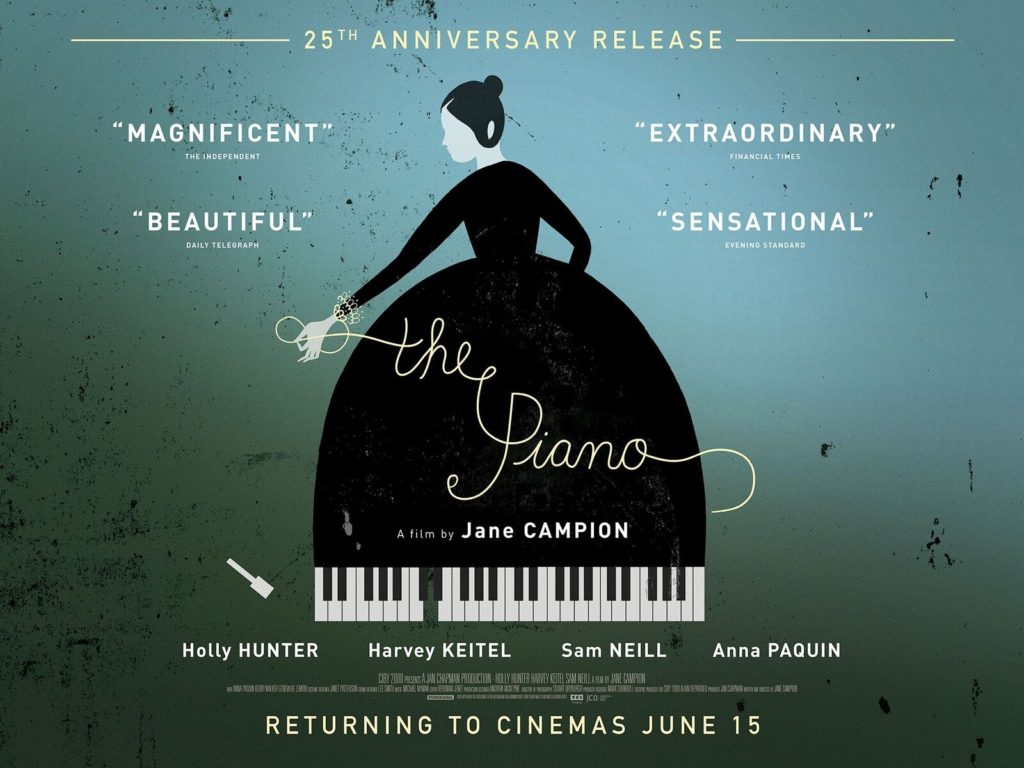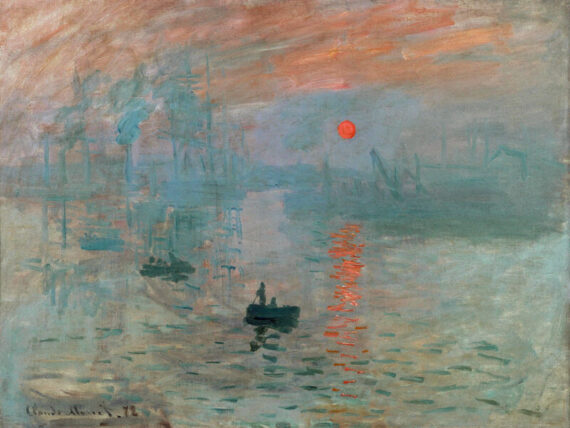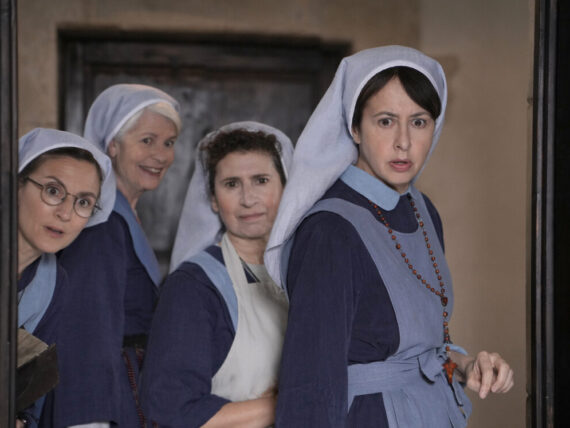Plymouth Arts Centre’s Film Programmer Anna Navas introduces us to The Piano, which begins our Open Air Cinema season on July 20th at Tinside Lido.
This summer, to celebrate the 25th anniversary of its release, the Independent Cinema Office is re-releasing The Piano. Given that Jane Campion is still, all these years later, the only woman to win the Palme D’Or at Cannes for directing it seems timely to revisit such a seminal, ground-breaking and thoroughly defiant film.
It is a film that created waves of devotion on its release. I saw it in London as soon as I could and I can still remember how it made me feel – mesmerised, awakened, alive to something new. Like so many women who saw it for the first time it was as if some rare connection had been made. Some strange language was being spoken and understood by an audience who didn’t know the language existed or that they were fluent in it.
Set in the mid-19th century, the film is the story of Ada (played by Holly Hunter), a mute, unmarried mother who is sold in marriage by her father to a man she has never met on the other side of the world. She is left on the beach in New Zealand with her daughter and her piano where she is collected by her new husband who refuses to allow his men to carry the piano to his house. One of the men, Baines (Harvey Keitel) offers to take the piano but in exchange asks for piano lessons from Ada in a pact she has no control over. What follows in the building relationship between them, moving from barely concealed disdain to confusion to an overpowering sexual awakening is a heady journey for Ada and for the audience.
Ada’s furious defiance of convention, society’s niceties, her family and husband, the spoken word, speaks volumes about her strength of will, her sense of self and her very ‘unladylike’ refusal to give even an inch of herself unwillingly. Her silence is louder than any voice could be and the music she plays on her piano is a language of her own making. It would be easy to see her piano as an embodiment of her soul and her heart but that suggests a kind of metaphorical and sentimental reading of the motif when, actually, the language of this film is a raw, visceral, sensual pleasure that is very clearly centred in Ada’s body.
All we know of her muteness is that it was chosen, that for reasons unknown she opted out of language when she was a child. When I read work by the French writer Helene Cixous, a few years after seeing the film I saw Ada in it everywhere. In her essay, The Laugh of the Medusa, Cixous wrote about how women can choose to remain trapped in their bodies by language that, created by patriarchal rules, does not allow them to express themselves – or they can create a language of their own. For Ada, to opt out of a language system that in its very structure would imprison her within patriarchal constructs, is an act of defiance but to then create her own language, the music, one that speaks so directly of her sensual and sexual self feels like a revolutionary act. Cixous wrote that women should use writing and the body as sources of power; they must write for themselves – and what is Ada doing when she is playing the piano? She is certainly not playing for the pleasure of others, she is using it only as a way of speaking to and of herself.
“I, too, overflow; my desires have invented new desires, my body knows unheard-of songs. Time and again I, too, have felt so full of luminous torrents that I could burst-burst with forms much more beautiful than those which are put up in frames and sold for a fortune. And I, too, said nothing, showed nothing; I didn’t open my mouth, I didn’t repaint my half of the world. I was ashamed. I was afraid, and I swallowed my shame and my fear. I said to myself: You are mad! What’s the meaning of these waves, these floods, these outbursts? Where is the ebullient infinite woman who… feeling a funny desire stirring inside her (to sing, to write, to dare to speak, in short, to bring out something new), hasn’t thought that she was sick? Well, her shameful sickness is that she resists death, that she makes trouble.” – this is written by Cixous but could easily be Ada.
On this anniversary I can’t think of a better film to open our summer series of Open Air Cinema screenings – and right beside the sea too. And just to get you in the mood, let’s not forget the ultimate homage to its perfection brought to you by two other brilliant creative women….









Comments
Comments are closed.